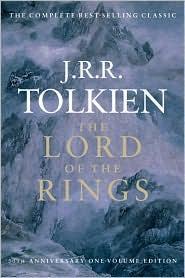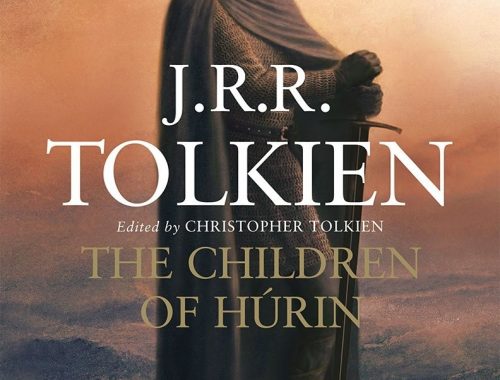Welcome back to my reread of The Lord of the Rings! As I’ve posted in my previous post, this reread is now bilingual, since I’ve been regretting not doing that properly for a while. And since I do have French editions of this trilogy, though not German editions yet, so it’s bilingual instead of trilingual.
To refresh your all’s memories, my commentary post on the Prologue of Fellowship is here. To this, I will now add some commentary about what it says in the French edition! I’m going to do this similarly to how I’ve been doing the Harry Potter reread posts, limiting the lingual commentary a bit so that I can keep the length of the posts down to something manageable.
So here we go! This is mostly going to be a bunch of commentary about various worldbuilding terms, given that they’ll be important once we get into the story proper. Once I’m past the prologue I’ll kick into the format I want to use for these posts.
The Prologue is called “Des Hobbits” in the French version. Which is a somewhat more literal way to say “Concerning Hobbits”, since you can translate this as “of the Hobbits”.
Unsurprisingly, hobbit height is given in centimeters rather than feet: “de 60 cm à 1 m 20”.
Bilbo and Frodo’s names both come up in the Prologue, of course, and they are Bilbon Sacquet and Frodon Sacquet. Notably, this is NOT how the name Bilbo was translated in my copy of Bilbo Le Hobbit! There, he was still “Bilbo Baggins”. Later translations of The Hobbit, though, are more in line with the translation of The Lord of the Rings.
The Red Book of Westmarch (i.e., The Hobbit) is called Le Livre Rouge de la Marche de l’Ouest.
Bilbo’s in-character title for the Red Book, There and Back Again, becomes Histoire d’un aller et retour. If I translate this correctly, this comes back to English as Story of a Round Trip.
The hobbits’ name for humans, Big Folk, becomes “Grande Gens” in French.
Bandobras “Bullroarer” Took becomes Bandobras “Le taureau mugissant” Touque! Interestingly, his father’s name is changed more distinctly, from Isumbras in English to Isengrin in French.
The Shire is called “la Comté” in French.
Middle-Earth becomes “la Terre du Milieu”.
The Third Age is “le Tiers Age”, not “Troisième”, interestingly.
Greenwood the Great, a.k.a. Mirkwood, becomes Vertbois-le-Grand. And Mirkwood, “le Forêt Noir”.
The three main branches of the hobbits, the Harfoots, Stoors, and Fallohides, become les Pieds, les Forts, and les Pâles. Which I feel are certainly more direct and literal names.
Weathertop becomes “Mont Venteux”, or “Windy Mountain”. Not a direct translation, but in the spirit of the name, I think.
Rivendell is mentioned in the Prologue as “Fondcombe”. I’m pretty sure I didn’t encounter this name for Rivendell in Bilbo le Hobbit–and, in fact, going back to doublecheck, I see that my French edition of The Hobbit calls Rivendell “La Combe Fendue”. Either way, this appears to be a pretty direct translation of “Rivendell”, i.e., “a riven dell”, or a “dell that’s been split”. At least, I can tell that “Fendue” comes from the verb fendre. How “fond” with an O comes in in the translation in LotR, I am not entirely sure.
(Putting this question out to the French speakers I know on Facebook. But if any French speakers want to chime in here, please do!)
Buckland is “Pays-de-Bouc”, which will, I think, give me a clue about what Brandybuck is going to turn into when I get to the first mention of Merry. 😀 (Which, in fact, is later on in the Prologue: he’s Meriadoc Brandebouc!)
Westernesse, where the Dúnedain come from, becomes “Ouistrenesse”. Which is an interesting spelling, given that I know that “west” in French is “ouest”, with an e, not an i.
Similarly, Westron, the Common Speech, becomes “Ouistrain”.
The Hobbit calendar, i.e., the Shire-reckoning, becomes “la datation de la Comté”. I recognize the word “datation” from SuperMemo!
The Brandywine river is rather literally translated to Brandevin.
Ooh, something I didn’t catch reading the English prologue before: the leader of the Nazgul is mentioned here as “the Witch-lord of Angmar”, not “Witch-king”. In French, his name becomes “le seigneur-magicien d’Angmar”.
Orcs are called Orques in this French edition.
Hobbiton becomes Hobittebourg.
The Grey Havens are les Havres Gris.
Ha! Pipe-weed becomes “l’herbe à pipe”. 😀
The recounting of Bilbo getting the Ring from Gollum gives Gollum’s immortal line “Thief! Thief! Baggins! We hates it forever!” In French, though, it’s written as “Voleur, voleur! Sacquet! On le hait z’a jamais!” Of particular interest to me here is the “z’a” part of this, because I have no idea what that is.
Sam is first mentioned in the Prologue, too, and here he becomes Samsagace.
And as a reminder, Sting is mentioned here, too. In French, its name is listed as Dard.
Thus concludes my review of the Prologue in French! Onward to Chapter One!


